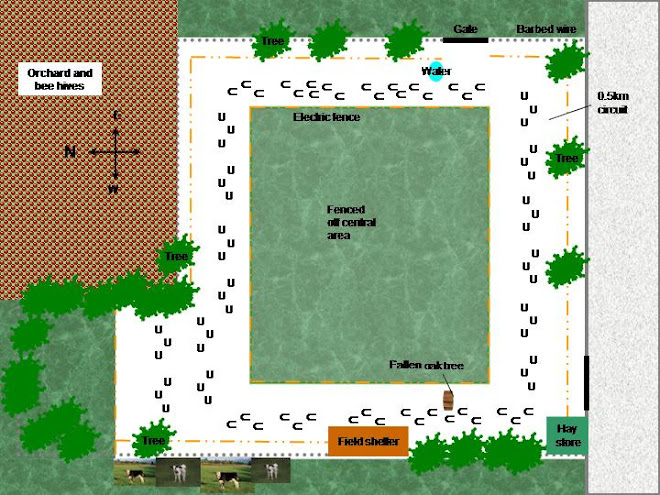An emotive statement perhaps - but if you understand equine physiology and throw in a splash of economics you can see how the case can be made.
Molasses is a by product of sugar production. And thanks to Food and Agriculture Organisation of the United Nations I learnt that sugar production has grown by over 50% in just over 20 years*. The same sort of time frame which has seen an explosion in the addition of molasses to horse feed.
About 75% of global sugar production comes from sugar cane. The yield of molasses from sugar cane is 3.5-4%. That is a lot of molasses; has to go somewhere and for the moment horses and their owners are an easy, profitable market.
Horses are paying the price with their health. And their owners are paying twice over – once for the molassed feeds and again for the increased vets’ bills.
The impact of a diet too high in sugar is not just the big obvious things like laminitis. There are all sorts of minor symptoms which go unnoticed or are dismissed as trivial or behavioural, when really we are making the horse sick. Have you ever noticed a horse with any of the following:
- Has, or has had laminitis
- Poor feet (crumbly, contracted, or won’t hold a shoe
- Has stress rings on their hooves (also known as grass rings)
- Footy over stones, ruts or hard ground
- Walks like a duck behind (or as if it has a full nappy)
- Has non specific lameness issues
- Is 'off', moody, grumpy or irritable
- Doesn't look you in the eye, or even looks away
- Has a dull coat
- Smells unpleasant generally or has gas issues
- Produces 'cow pat' style droppings
- Is particularly spooky or hard to manage
- Is cresty, has cellulite or excessive body fat
- Gets swollen legs when stabled
- Has a swollen or greasy sheath (gelding) or greasy teats (mare)
- Is 'lazy', reluctant or naps
Just think – it might be the sugar in their diet. But until its taken out you will never know for sure.
Of course it’s not just molasses which is to blame; any diet and/or management regime which doesn’t respect the equine digestive system can cause trouble.
Horses are not designed to eat large quantities of sugars or simple starches. They are miracles of evolution (or day 6 depending on your point of view), perfectly designed to live well and prosper on large volumes of high fibre, low nutritional value, plants, while still retaining the ability to run really fast from a standing start, over a fair distance and turn on a dime (sixpence).
The downside of this brilliant piece of biological engineering is that while a horse's digestive system is perfectly fitted for its purpose, it isn't particularly adaptable and it doesn't work anything like a human's.
So what should we give a horse? It’s really very simple, go back to basics, respect nature feed:-
- Ad-lib high fibre, low sugar, mixed forage (hay or haylage)
- Free choice access to natural sources of minerals
- Free choice access to good quality water
If your horse is working hard or is a poor keeper you can add things like:-
- Micronised linseed (excellent source of amino acids and omega 3)
- (Low sugar) Sugar Beet (Kwik Beet is the lowest in the UK at 3%)
Some horses will benefit from free access to beneficial herbs. My old horse was always better when given access to dried nettles, which she loved. Another horse always feasted on roses after a work out.
Just bear in mind that some plants are really high in sugar, so you need to know your plants and restrict access as appropriate. I knew one horse that adored Elderflowers and berries but her legs always swelled afterwards, probably because of the sugar content.
I’ll write more about diet specifics in another post, as this one is long enough already!
* On average between 1988 and 1990 global sugar production was 109 879 000 tonnes. For 2010 the projected figure is 165 131 000 tonnes.








3 comments:
Question: I have heard a lot on the BBC recently about Brazil's sugar cane production. A large portion of their cane goes into ethanol manufacture. Do you happen to know if molasses can still be produced as a by-product of ethanol production?
I'm thinking not, which when you combine with the fact that Florida will soon be all but ceasing sugar cane production, as the state is purchasing U.S. Sugar's millions of acres to return to natural swamp, could potentially affect sugar prices and cause a rise. . .
But then I imagine it will the same as when feed corn when up in price, due to ethanol production, and that just raised the cost of corn-based sweet feeds, instead of driving consumers towards beet pulp based (which are quite expensive in the U.S.).
I could not agree more that the sugar intake of horses should be cut dramatically, the same with children for that matter. Feed companies seem to regard horses as larger, more delicate cattle - who are also fed ridiculous amounts of molasses.
Good blog!
Natalie Reinert
Retired Racehorse Blog
Great thought. Apparently if Ethanol drops below $2.35 it is uneconomic to use sugar as a feedstock. Ethanol futures are currently about $2.30 - so for the moment all that molasses is going to make more money sold in horse feed. I understand that while Brazil uses sugar as a feedstock for Ethanol, in the US it is more common to use corn.
That's $2.35 per gallon
Post a Comment